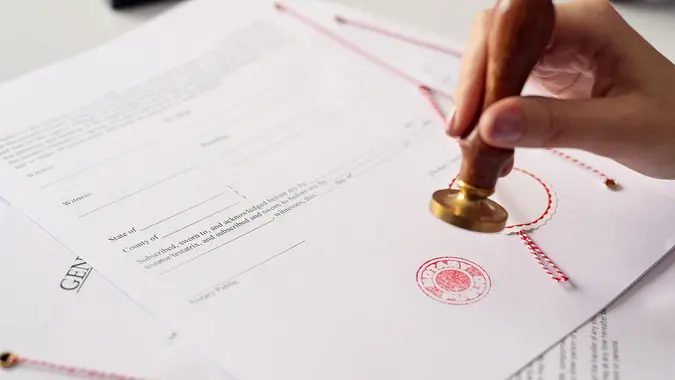Mark Cuban Would Start This Side Gig If He Were a Teenager

Commitment to Our Readers
GOBankingRates' editorial team is committed to bringing you unbiased reviews and information. We use data-driven methodologies to evaluate financial products and services - our reviews and ratings are not influenced by advertisers. You can read more about our editorial guidelines and our products and services review methodology.

20 Years
Helping You Live Richer

Reviewed
by Experts

Trusted by
Millions of Readers
It’s never too early to start planning for your financial future, and no one understands this better than billionaire entrepreneur and investor Mark Cuban. He started making money at the age of 12, when he began selling trash bags. He differentiated himself by offering delivery.
Time have changed, and delivery of grocery and household items is commonplace, so Cuban’s idea likely wouldn’t be as successful today. But he knows what he would do as a side gig today, and you can do it too.
In an interview with CNBC Make It, Cuban said he would start an artificial intelligence (AI) side hustle in three steps. Here’s what you need to know about the side gig Cuban would start if he were a teenager today.
Also see four side gigs no one talks about that pay surprisingly well.
Step One: The Basics of Writing AI Prompts
The first step Cuban would take would be to learn how to write prompts for ChatGPT, Microsoft Copilot or Google Gemini. This sounds easy, but there’s definitely an art to it. According to the tech company Atlassian, there are four things to keep in mind.
The first is persona. Writing naturally is important, but it’s even more effective to write in the first person. Instead of asking, “What is the best way to get into college?” you could say, “I’m a high school junior. Give me five things to do to increase my chances of getting into college.”
Next, there’s the task. Being specific about what you want the AI to do is an important part of writing an effective prompt. If you’re writing an email or a blog post, say so. If you’re looking for tips on something (as in the college example above), ask for tips specifically. Be clear and concise. You can always ask for more detail later.
Then, there’s context. Include your reason for asking and, if applicable, your audience in your prompt. This will help AI tailor the response to be useful to you. Including the intended audience of the piece will provide a response that’s appropriate for that audience.
And finally, there’s format. Stating the format can mean including the number of words and whether you want to response to be friendly, academic, promotional or something else. If you want something other than straight text, you can ask for a bulleted list, a table or even an image.
Steps Two and Three: Monetize That Knowledge
Just knowing how to write effective AI prompts probably won’t make you much money. But if you write those prompts for businesses or teach businesses and friends how they can write their own prompts, now you’re looking at a revenue stream.
In the interview, Cuban explained he’d teach his friends how to write prompts and then approach businesses. “I would go to businesses, particularly small- to medium-sized businesses that don’t understand AI yet. Doesn’t matter if I’m 16, I’d be teaching them as well,” he said.
What Qualifications Do You Need?
A college degree isn’t required to become an expert in writing AI prompts. What you will need, however, is lots of practice. Start by writing your own prompts, and test them on different models. You’ll soon learn what models respond well to certain types of prompts, and you’ll learn how these large language models operate in general.
There are online courses to help you, and you can get certifications to show that you’ve been trained. There are courses on Coursera, and you can also look into courses from colleges like Northeastern University or the Massachusetts Institute of Technology.
Teenagers have a couple of advantages here if they want to be financially successful. They have the ability to start early. Beginning a business in your teens gives you plenty of time to figure things out and pivot to something new if your first idea doesn’t work out. They also are typically savvier with new technology, like AI. Using that knowledge and familiarity to educate those who don’t understand it can be a great side gig for a teenager.
 Written by
Written by  Edited by
Edited by 

























